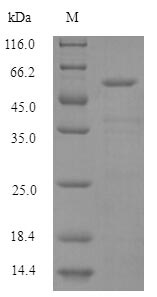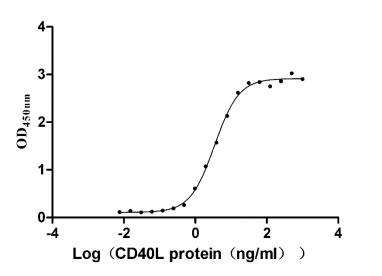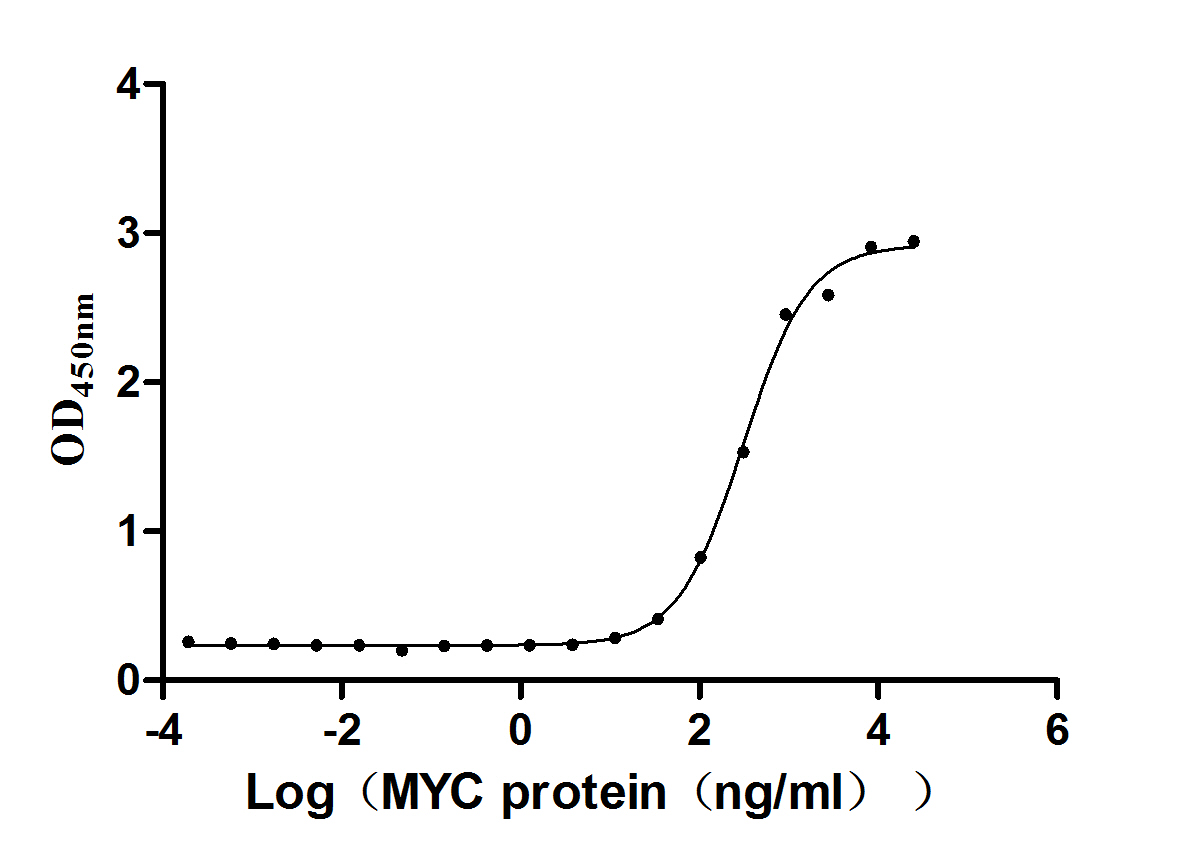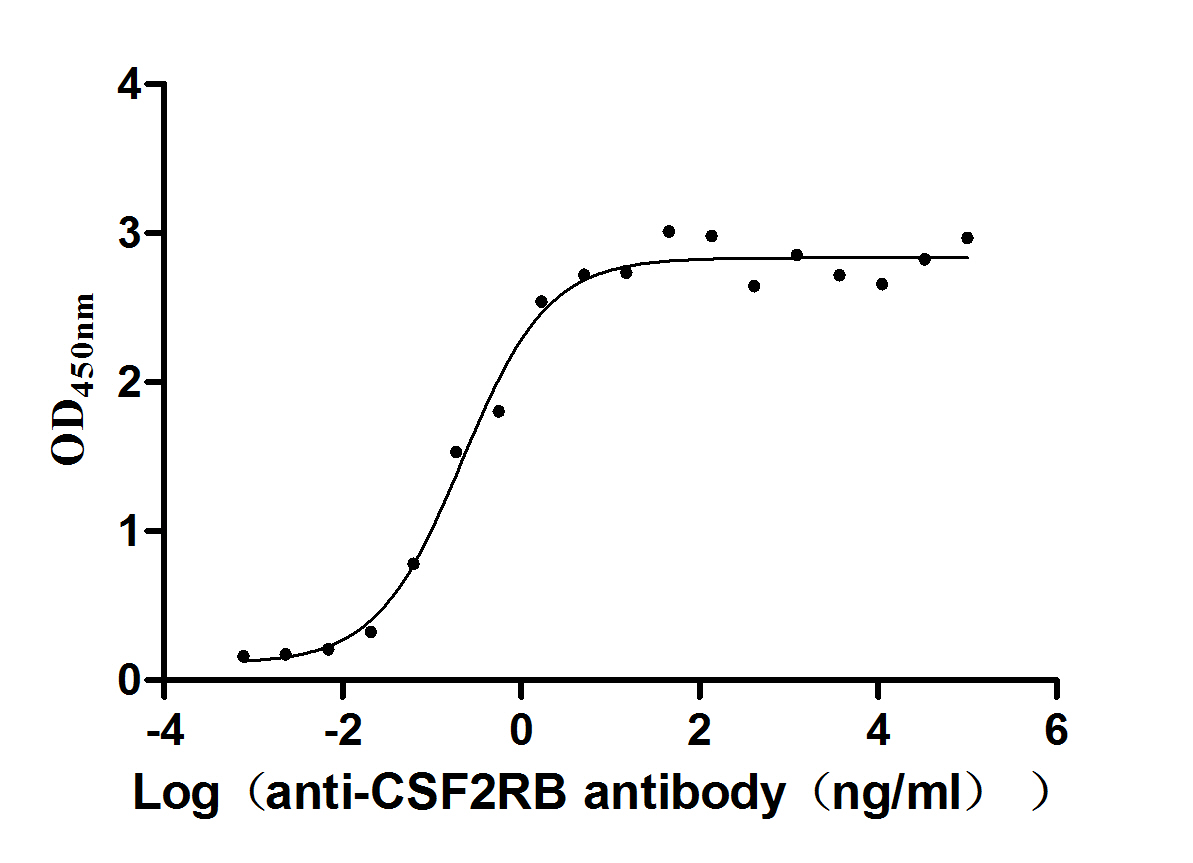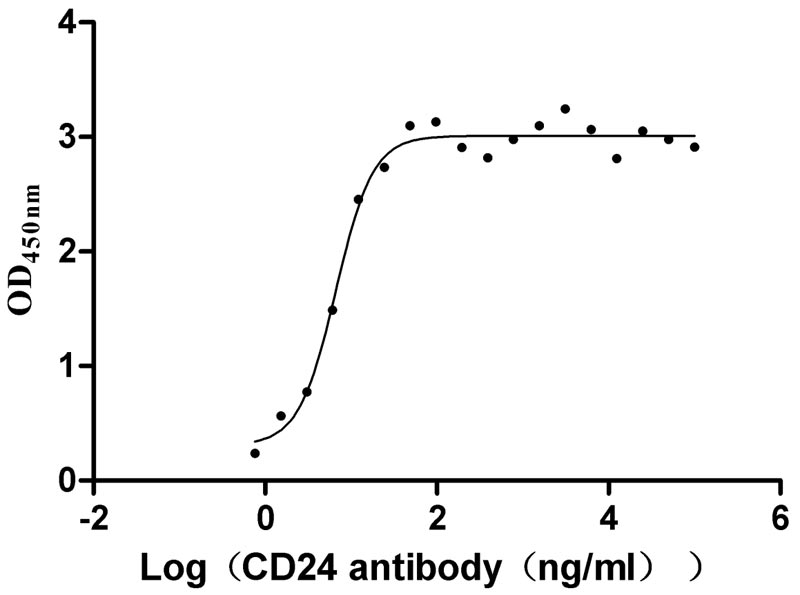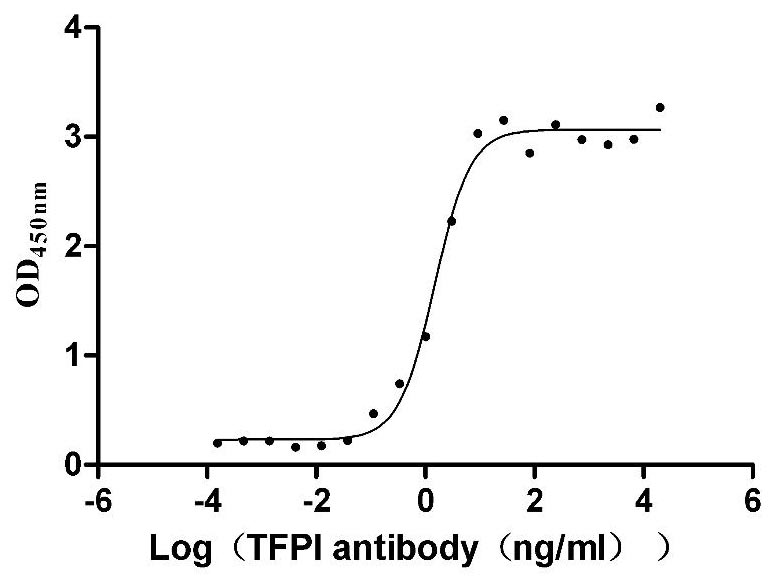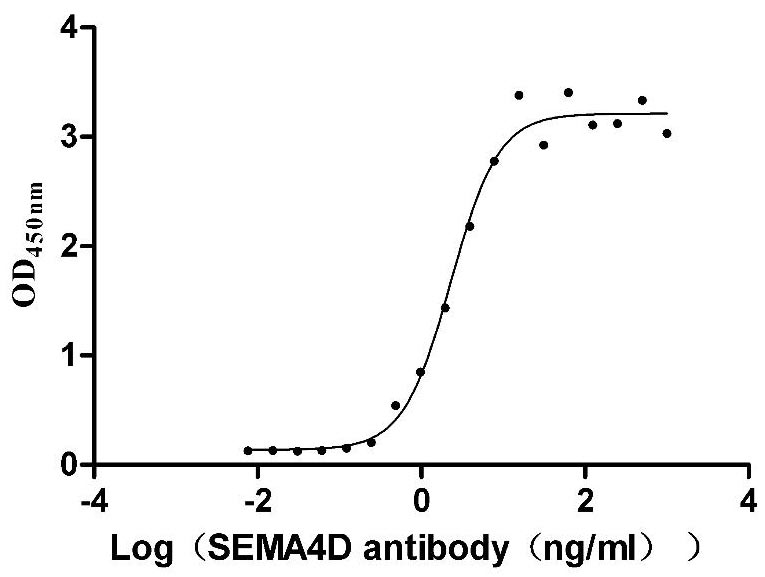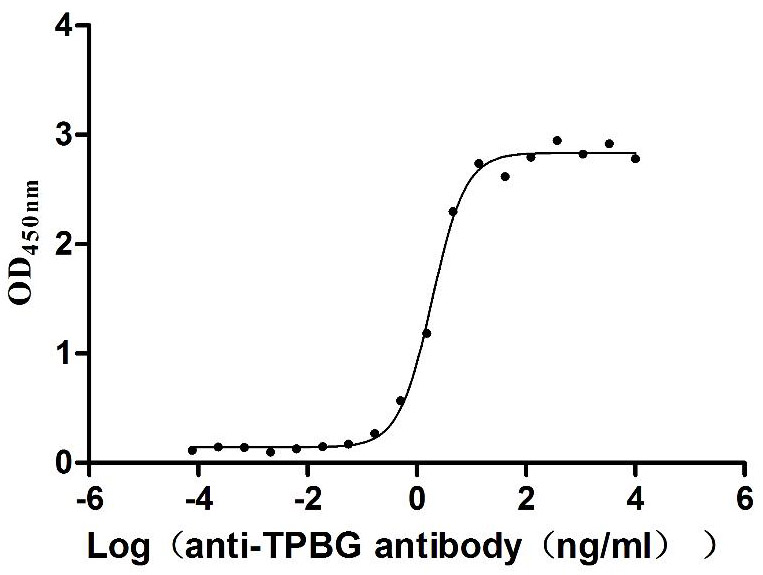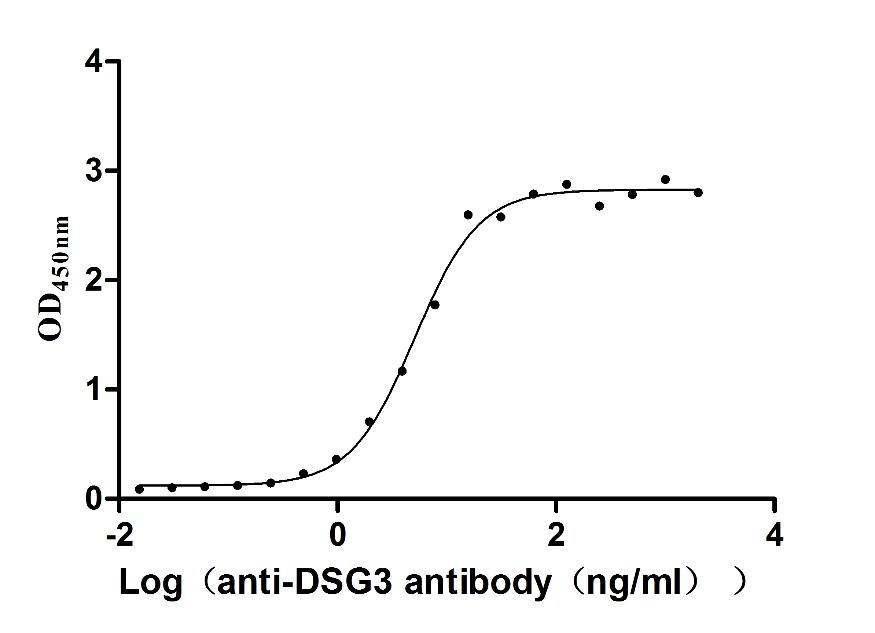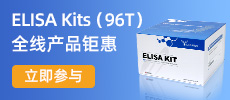Recombinant Human Histidine--tRNA ligase, cytoplasmic (HARS1), partial
-
中文名稱:人HARS1重組蛋白
-
貨號(hào):CSB-BP010137HU
-
規(guī)格:¥2400
-
圖片:
-
其他:
產(chǎn)品詳情
-
純度:Greater than 90% as determined by SDS-PAGE.
-
基因名:HARS1
-
Uniprot No.:
-
別名:cytoplasmic; EC 6.1.1.21 ; FLJ20491 ; HARS; HisRS; Histidine tRNA ligase, cytoplasmic; histidine translase; Histidine tRNA ligase; Histidine--tRNA ligase; Histidyl tRNA synthetase ; Histidyl-tRNA synthetase; HRS ; Human histidyl tRNA synthetase homolog (HO3) mRNA complete cds; SYHC_HUMAN; USH3B
-
種屬:Homo sapiens (Human)
-
蛋白長(zhǎng)度:Partial
-
來源:Baculovirus
-
分子量:58.7kDa
-
表達(dá)區(qū)域:2-504aa
-
氨基酸序列AERAALEELVKLQGERVRGLKQQKASAELIEEEVAKLLKLKAQLGPDESKQKFVLKTPKGTRDYSPRQMAVREKVFDVIIRCFKRHGAEVIDTPVFELKETLMGKYGEDSKLIYDLKDQGGELLSLRYDLTVPFARYLAMNKLTNIKRYHIAKVYRRDNPAMTRGRYREFYQCDFDIAGNFDPMIPDAECLKIMCEILSSLQIGDFLVKVNDRRILDGMFAICGVSDSKFRTICSSVDKLDKVSWEEVKNEMVGEKGLAPEVADRIGDYVQQHGGVSLVEQLLQDPKLSQNKQALEGLGDLKLLFEYLTLFGIDDKISFDLSLARGLDYYTGVIYEAVLLQTPAQAGEEPLGVGSVAAGGRYDGLVGMFDPKGRKVPCVGLSIGVERIFSIVEQRLEALEEKIRTTETQVLVASAQKKLLEERLKLVSELWDAGIKAELLYKKNPKLLNQLQYCEEAGIPLVAIIGEQELKDGVIKLRSVTSREEVDVRREDLVEEIKRRTGQ
Note: The complete sequence may include tag sequence, target protein sequence, linker sequence and extra sequence that is translated with the protein sequence for the purpose(s) of secretion, stability, solubility, etc.
If the exact amino acid sequence of this recombinant protein is critical to your application, please explicitly request the full and complete sequence of this protein before ordering. -
蛋白標(biāo)簽:N-terminal 6xHis-tagged
-
產(chǎn)品提供形式:Liquid or Lyophilized powder
Note: We will preferentially ship the format that we have in stock, however, if you have any special requirement for the format, please remark your requirement when placing the order, we will prepare according to your demand. -
緩沖液:If the delivery form is liquid, the default storage buffer is Tris/PBS-based buffer, 5%-50% glycerol.
Note: If you have any special requirement for the glycerol content, please remark when you place the order.
If the delivery form is lyophilized powder, the buffer before lyophilization is Tris/PBS-based buffer, 6% Trehalose. -
儲(chǔ)存條件:Store at -20°C/-80°C upon receipt, aliquoting is necessary for mutiple use. Avoid repeated freeze-thaw cycles.
-
保質(zhì)期:The shelf life is related to many factors, storage state, buffer ingredients, storage temperature and the stability of the protein itself.
Generally, the shelf life of liquid form is 6 months at -20°C/-80°C. The shelf life of lyophilized form is 12 months at -20°C/-80°C. -
貨期:Basically, we can dispatch the products out in 1-3 working days after receiving your orders. Delivery time may differ from different purchasing way or location, please kindly consult your local distributors for specific delivery time.Note: All of our proteins are default shipped with normal blue ice packs, if you request to ship with dry ice, please communicate with us in advance and extra fees will be charged.
-
注意事項(xiàng):Repeated freezing and thawing is not recommended. Store working aliquots at 4°C for up to one week.
-
Datasheet & COA:Please contact us to get it.
相關(guān)產(chǎn)品
靶點(diǎn)詳情
-
功能:Catalyzes the ATP-dependent ligation of histidine to the 3'-end of its cognate tRNA, via the formation of an aminoacyl-adenylate intermediate (His-AMP). Plays a role in axon guidance.
-
基因功能參考文獻(xiàn):
- This study suggests that the human HisRS genes, while descending from a common ancestor with dual function for both types of tRNA(His), have acquired highly specialized tRNA recognition properties through evolution. PMID: 28321488
- Despite the similar kinetics, differential scanning fluorimetry revealed that Y454S is less thermally stable than Wild Type HARS, and cells from Y454S patients grown at elevated temperatures demonstrate diminished levels of protein synthesis compared to those of Wild Type cells. The thermal sensitivity associated with the Y454S mutation represents a biochemical basis for understanding Usher Syndrome Type IIIB. PMID: 28632987
- Loss of function mutations in histidyl-tRNA synthetase cause a spectrum of inherited peripheral neuropathies PMID: 26072516
- Data suggest that by comparing human and trypanosomatid histidyl-tRNA synthetases (HisRS) may provide opportunities for developing specific inhibitors of Trypanosoma brucei HisRS. PMID: 25151410
- Secreted histidyl-tRNA synthetase splice variants elaborate major epitopes for autoantibodies in inflammatory myositis. PMID: 24898250
- Data indicate that higher anti-Jo1 levels were associated with disease severity in antisynthetase syndrome (ASS) patients. PMID: 24286268
- Non-Jo-1 anti-synAb positive patients have decreased survival compared with Jo-1 patients. PMID: 23422076
- Findings suggest that histidyl-tRNA synthetase (HARS) is associated with axonal peripheral neuropathy. PMID: 22930593
- The crystal structure of a novel splice variant of a tRNA synthetase lacking the entire catalytic domain. PMID: 22958643
- Although anti-Jo1 positive patients with antisynthetase syndrome share features of patients with anti-PL7/PL12 antibody, they exhibit many differences regarding clinical phenotype and long-term outcome. PMID: 22326685
- Study identified sequence variants in the known disease-causing genes SLC6A3 and FLVCR1, and present evidence to strongly support the pathogenicity of variants identified in TUBGCP6, BRAT1, SNIP1, CRADD, and HARS. PMID: 22279524
- genomic organization of the HARS locus and mapping of transcripts originating from a bi-directional promoter controlling the differential expression of these gene PMID: 12056811
- Demonstrating histidyl-tRNA synthetase (Jo-1)-specific T cell responses represents a key step in establishing the hypothesis that Jo-1 drives T cell-mediated autoimmunity in Jo-1+ polymyositis. PMID: 12471150
- the TSG101 interaction with HRS is a crucial step in endocytic down-regulation of mitogenic signaling and this interaction may have a role in linking the functions of early and late endosomes PMID: 12802020
- A proteolytically sensitive conformation of HisRS exists in the lung, the target tissue associated with this autoantibody response. PMID: 17665459
- clinical and prognostic profiles of 45 patients displaying anti-histidyl-tRNA synthetase autoantibodies were determined PMID: 17785330
顯示更多
收起更多
-
相關(guān)疾病:Usher syndrome 3B (USH3B); Charcot-Marie-Tooth disease 2W (CMT2W)
-
亞細(xì)胞定位:Cytoplasm.
-
蛋白家族:Class-II aminoacyl-tRNA synthetase family
-
組織特異性:Brain, heart, liver and kidney.
-
數(shù)據(jù)庫(kù)鏈接:
Most popular with customers
-
Recombinant Human Tumor necrosis factor receptor superfamily member 5 (CD40), partial (Active)
Express system: Mammalian cell
Species: Homo sapiens (Human)
-
Recombinant Human papillomavirus type 16 Protein E7 (E7) (Active)
Express system: E.coli
Species: Human papillomavirus type 16
-
Recombinant Human Cytokine receptor common subunit beta (CSF2RB), partial (Active)
Express system: Mammalian cell
Species: Homo sapiens (Human)
-
Recombinant Human Signal transducer CD24 (CD24)-Nanoparticle (Active)
Express system: Mammalian cell
Species: Homo sapiens (Human)
-
Recombinant Human Tissue factor pathway inhibitor (TFPI), partial (Active)
Express system: Mammalian cell
Species: Homo sapiens (Human)
-
Recombinant Macaca mulatta Semaphorin-4D isoform 1 (SEMA4D), partial (Active)
Express system: Mammalian cell
Species: Macaca mulatta (Rhesus macaque)
-
Recombinant Macaca fascicularis Trophoblast glycoprotein (TPBG), partial (Active)
Express system: Mammalian cell
Species: Macaca fascicularis (Crab-eating macaque) (Cynomolgus monkey)
-
Recombinant Human Desmoglein-3 (DSG3), partial (Active)
Express system: Baculovirus
Species: Homo sapiens (Human)

